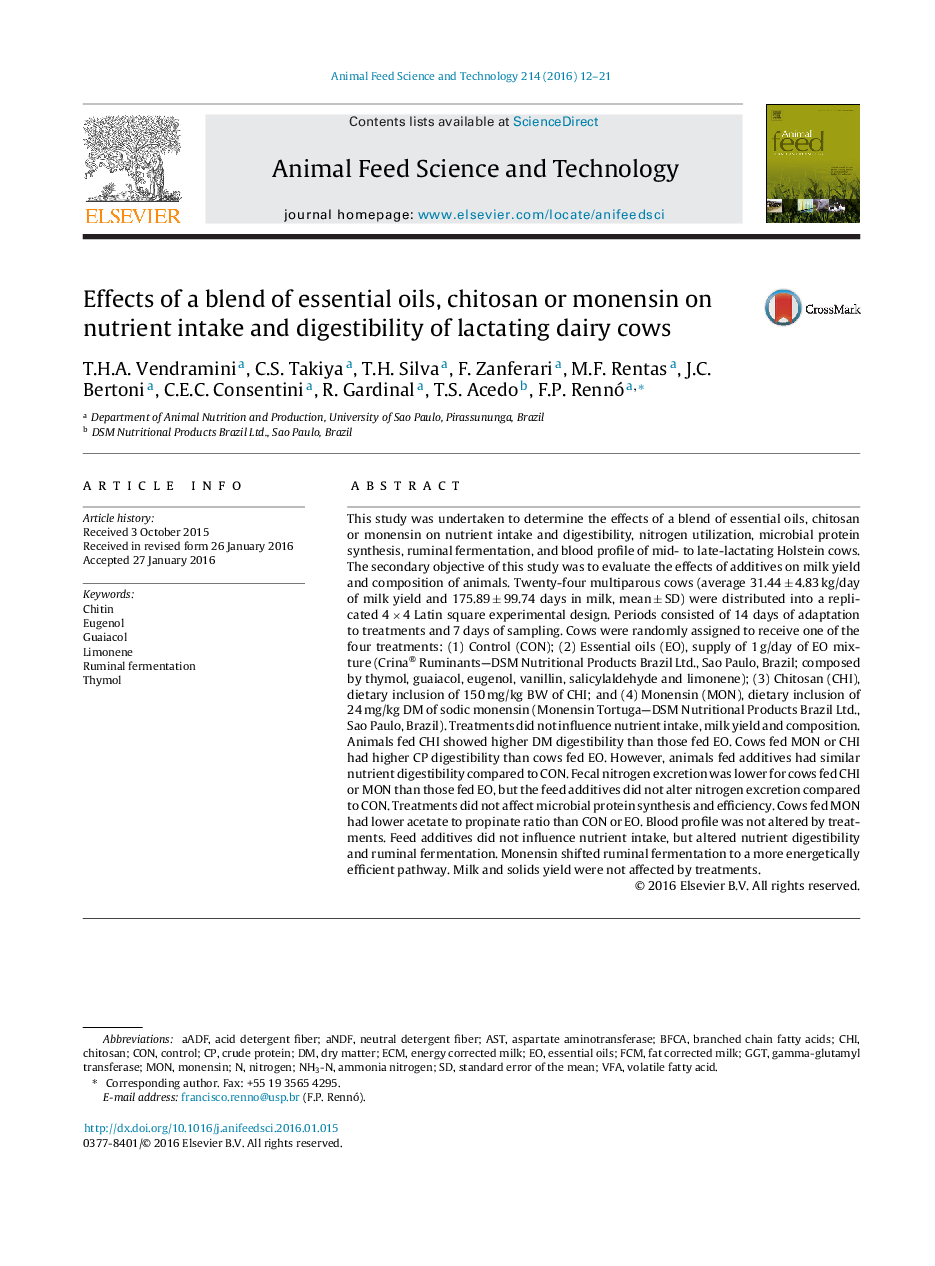| Article ID | Journal | Published Year | Pages | File Type |
|---|---|---|---|---|
| 2419290 | Animal Feed Science and Technology | 2016 | 10 Pages |
•Alternative additives to monensin were evaluated to improve nutrient digestibility.•Feed additives did not alter nutrient intake and digestibility when compared to control.•Chitosan and monensin had the lowest values of nitrogen in feces.•Chitosan and monensin had the lowest values of acetate to propionate ratio.
This study was undertaken to determine the effects of a blend of essential oils, chitosan or monensin on nutrient intake and digestibility, nitrogen utilization, microbial protein synthesis, ruminal fermentation, and blood profile of mid- to late-lactating Holstein cows. The secondary objective of this study was to evaluate the effects of additives on milk yield and composition of animals. Twenty-four multiparous cows (average 31.44 ± 4.83 kg/day of milk yield and 175.89 ± 99.74 days in milk, mean ± SD) were distributed into a replicated 4 × 4 Latin square experimental design. Periods consisted of 14 days of adaptation to treatments and 7 days of sampling. Cows were randomly assigned to receive one of the four treatments: (1) Control (CON); (2) Essential oils (EO), supply of 1 g/day of EO mixture (Crina® Ruminants—DSM Nutritional Products Brazil Ltd., Sao Paulo, Brazil; composed by thymol, guaiacol, eugenol, vanillin, salicylaldehyde and limonene); (3) Chitosan (CHI), dietary inclusion of 150 mg/kg BW of CHI; and (4) Monensin (MON), dietary inclusion of 24 mg/kg DM of sodic monensin (Monensin Tortuga—DSM Nutritional Products Brazil Ltd., Sao Paulo, Brazil). Treatments did not influence nutrient intake, milk yield and composition. Animals fed CHI showed higher DM digestibility than those fed EO. Cows fed MON or CHI had higher CP digestibility than cows fed EO. However, animals fed additives had similar nutrient digestibility compared to CON. Fecal nitrogen excretion was lower for cows fed CHI or MON than those fed EO, but the feed additives did not alter nitrogen excretion compared to CON. Treatments did not affect microbial protein synthesis and efficiency. Cows fed MON had lower acetate to propinate ratio than CON or EO. Blood profile was not altered by treatments. Feed additives did not influence nutrient intake, but altered nutrient digestibility and ruminal fermentation. Monensin shifted ruminal fermentation to a more energetically efficient pathway. Milk and solids yield were not affected by treatments.
